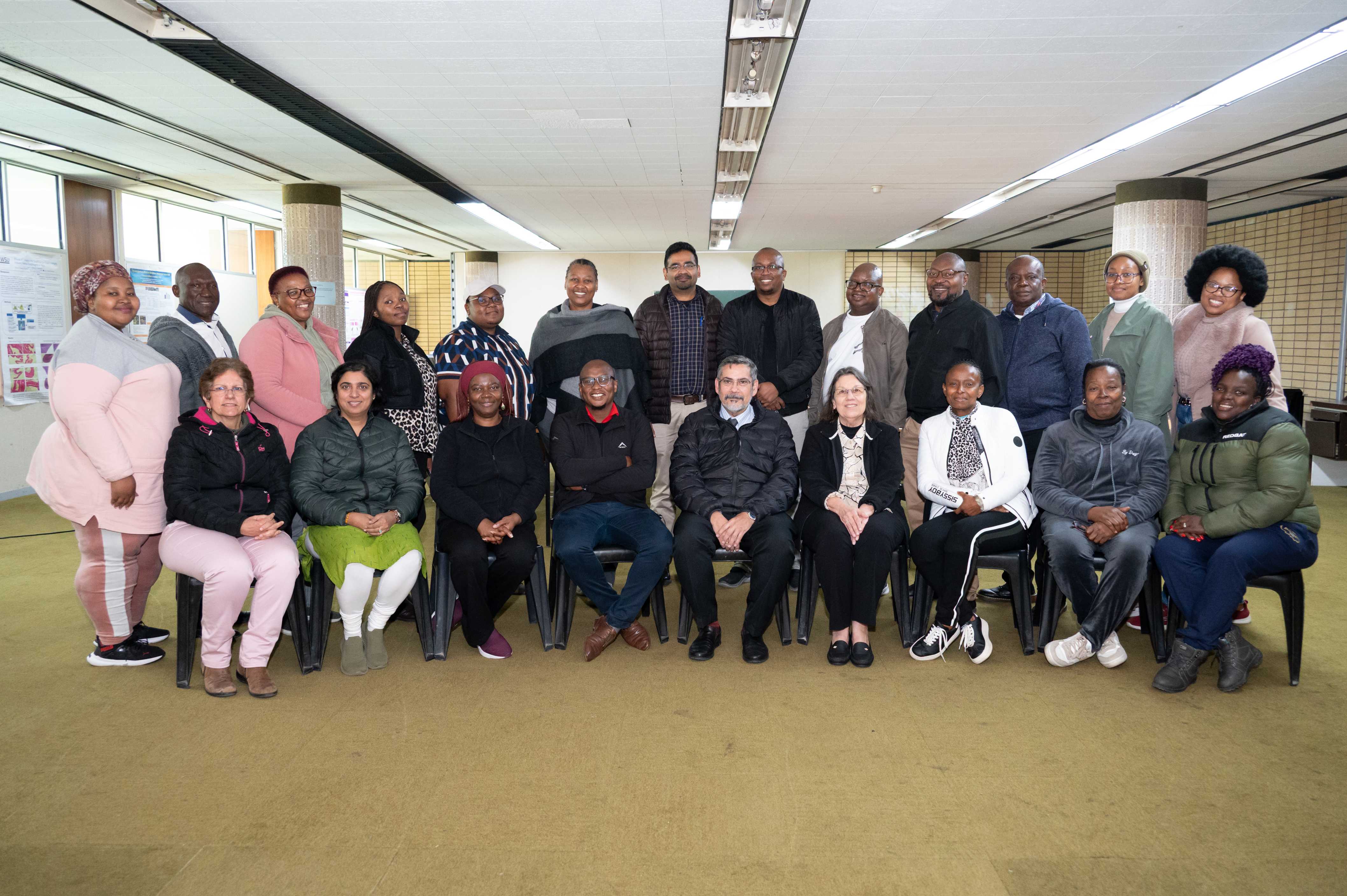TRAINING WORKSHOP DEVELOPS EFFECTIVE PROBLEM-BASED LEARNING FACILITATORS

With the integration of problem-based learning (PBL) in the Health Sciences curriculum, the Faculty of Medicine and Health Sciences’ Centre of Health Education Research and Development (CHERD) conducted a workshop for PBL tutors.
Titled “Train the trainer”, the workshop was attended by the tutors and academics from the university’s Department of Human Biology.
It was aimed at enhancing the skills of facilitators in the Health Sciences PBL curriculum, which forms part of the Bachelor of Medicine and Bachelor of Surgery (MBChB) degree.
Human Biology Head of Department, Professor Constance Rusike, defined PBL as a learning process of knowledge construction where students play an active role in knowledge acquisition and the need for teachers to facilitate their learning.
“The whole purpose of PBL is for the students to be able to discuss and analyse the problem of the patient that brings out the science we need to cover, by identifying the learning needs and then applying their findings to propose solutions. It promotes self-directed learning,” said Rusike.
The sessions conducted in the workshop included the creation of small group discussions about case vignettes derived from clinical settings that identified the role of the problem, the role of the tutor and that of the student.
After each session, the tutors presented their findings as they applied collective problem-solving strategies and exchanged skills.
From the faculty’s point of view, HOD of Health Professions Education, Professor Blanco, said that they had started a reflection exercise at the level of the phases and that students would be given handbooks for feedback on facilitation.
“We are going to undertake training at regular intervals especially for new staff. We are also expecting all the regular staff to have completed the course if they have not been properly inducted into the culture of PBL and how it is done,” said Blanco.
The participants acknowledged the importance of the workshop and its worth in the implementation of PBL.
Department of Human Biology lecturer in the Physiology division, Dr Anelisa Mahamba, said: “The role of facilitators is of great importance. And now, as we go back to our different tutorial groups, each one of us now has a responsibility of enacting our understanding of the key principles of PBL.”
Meanwhile COBES & clinical skills practitioner, Dr Phakama Mnyaka, added that sometimes bad performance in tutorial outcomes can be contributed by both tutor and student therefore, for tutorial groups to work well, everybody needs to understand their role in the group and participate actively and accordingly.
The facilitative skills needed for PBL include the integration of information in different domains, critical thinking and reasoning, collaboration and team spirit, professionalism, responsibility and accountability.
By Thandeka Mgqibi
